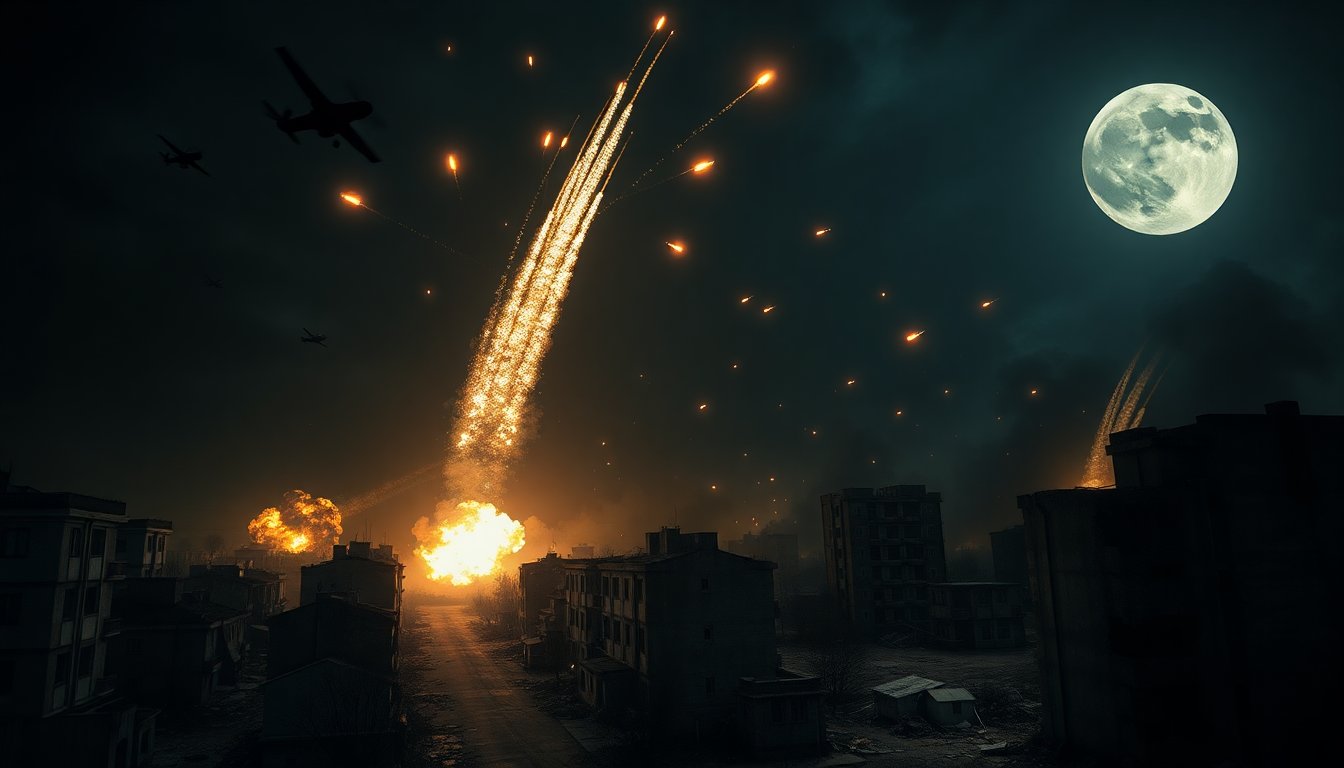Table of Contents
Russia has executed a large-scale military offensive against Ukraine, deploying over 600 drones and numerous missiles. This aggressive action coincided with the United Nations General Assembly, underscoring the tension between diplomatic discussions and military conflict.
The overnight assault marks a significant escalation in hostilities, raising international alarms. Observers note that such bold military maneuvers during a key diplomatic event indicate a blatant disregard for international norms and ongoing dialogue aimed at resolving the conflict.
Details of the attack
The coordinated strike targeted multiple regions of Ukraine, affecting both urban and rural areas. Military analysts suggest that the deployment of over 600 drones reflects Russia’s expanding capabilities in unmanned aerial warfare. Additionally, the extensive use of missiles underscores the severity and intent behind this operation.
Technological advancements in warfare
The rise of drones has transformed modern warfare, enabling nations to conduct precise strikes while minimizing risk to personnel. Russia’s extensive use of these aerial vehicles highlights a strategic emphasis on technology in military operations. These attacks have caused damage to military targets and posed a threat to civilian infrastructure, raising concerns about the humanitarian impact of such escalated tactics.
In response, Ukraine has been enhancing its defenses. This ongoing arms race has led to increased military spending and international support for Ukraine, as allies seek to provide advanced air defense systems and counter-drone technologies.
International response and implications
The timing of this attack has drawn widespread condemnation from global leaders attending the U.N. meetings focused on peace and security. This incident exacerbates already strained relations between Russia and the Western world. Leaders from NATO and other allied nations have reaffirmed their commitment to supporting Ukraine, emphasizing the need for a unified response to Russian aggression.
The role of international diplomacy
The United Nations has faced challenges in effectively addressing the ongoing conflict. While the assembly aims to foster dialogue and promote peace, events like this illustrate the limitations of diplomatic efforts in the face of military action. There is a growing sentiment among member states that more decisive measures may be necessary to hold aggressors accountable and uphold international law.
As the aftermath of this latest attack unfolds, the question of how the global community will respond remains critical. Sanctions, condemnation, and increased military aid to Ukraine are likely components of a broader strategy to counteract Russia’s actions. However, the risk of escalating tensions complicates the international landscape, making it essential for leaders to navigate these challenges carefully.
Russia’s military offensive not only signifies a notable escalation in the ongoing conflict but also reflects a troubling trend in global geopolitics. The juxtaposition of military aggression with diplomatic efforts raises important questions about the effectiveness of international institutions in maintaining peace. As the situation evolves, the world watches closely, hoping for a resolution that prioritizes human rights and stability over continued hostilities.


